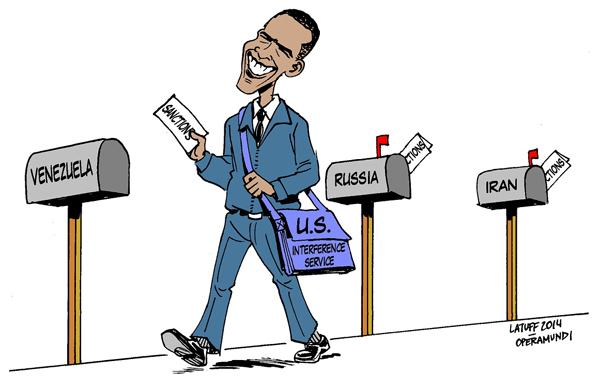
By Haddon Libby
As we start the New Year with the hope and promise of a better tomorrow, we have some very good news on the economic and political fronts – the drop in oil prices has helped to improve the economy here in the United States while causing havoc on the economies of rogue nation states like Russia, Iran and Venezuela.
With national and local economies that are heavily reliant on consumer spending, the rapid oil price decline from $115 a barrel in June to under $60 a barrel has served as a welcomed relief to consumers and businesses alike. The fall in oil prices is a key reason that the national economy is currently growing at a 5% clip. This level of growth creates more jobs and wage increases.
One of the key reasons for the fall in oil prices is the increase in U.S. oil production by 4 million barrels a day to 9 million barrels a day since the start of the Obama Administration. This near doubling in production is due to increased oil production from shale as well as the technological advances such as fracking. Despite the continued increase in oil demand worldwide, the world currently produces 2 million barrels of oil a day more than it needs.
While the fall in oil prices will inevitably lead to the decrease in production from higher cost oil producers of which many are here in the United States, no significant oil producers are cutting back production. This means that oil prices will continue to remain under pressure for the near future – good news to you and me.
Our good news causes economic strife for rogue nations like Iran, Russia and Venezuela.
Because of the economic pressure caused by lower oil prices, Iran may agree to a deal restricting their nuclear ambitions. Iran’s budget deficit is estimated at $1 billion a month – more than they can sustain for any significant period of time. One small thing that Iran has done to offset the decline in their coffers is allowed young men to buy their way out of mandatory military service. Lower oil prices are also expected to cause Iran to funnel less financial support to radical organizations in the Middle East meant to destabilize the region.
Other Middle Eastern oil exporters like Saudi Arabia have massive cash reserves and have made it clear that they will not cut their production levels. The Saudis reason that past supply reductions meant to prop up the price of oil were violated by other nations like Russia and Iran – two countries that have caused the Saudis regional political problems. As such, the Saudis are content to let the price decline. Like Iran, it is anticipated that the price decline in oil may cut back on the financial extortion that nations like Saudi Arabia and the United Arab Emirates pay to radical groups in return for domestic stability.
A lower oil price puts pressure on Russian leader Vladimir Putin to stop acting like Al Capone of the East. The effect of Western economic sanctions when combined with lower oil prices will cause a serious recession in Russia in 2015. This combination has already destabilized the Russian currency while leading to the flight of hundreds of billions of dollars from their economy. Only last week, Putin put a freeze on vodka prices – a sure sign that their economy is in trouble. Apple recently stopped shipping their products to Russia due to a currency that is in free fall.
Lower oil prices means that Venezuela may not subsidize Cuban oil as they have in the past. Could this be a reason for Cuba’s softening of its opposition to the opening of relations with the United States? Many experts in Cuban-American relations believe this to be the case.











































